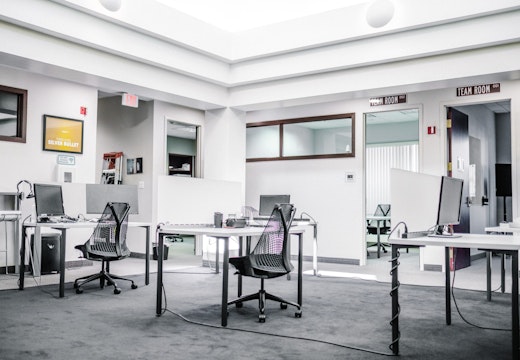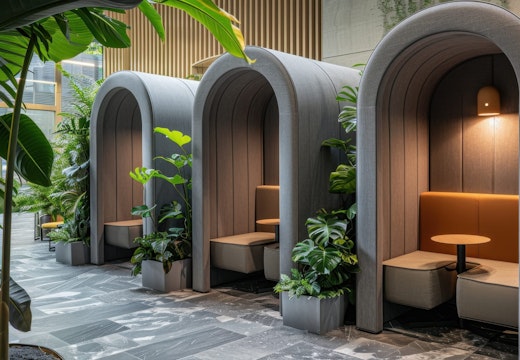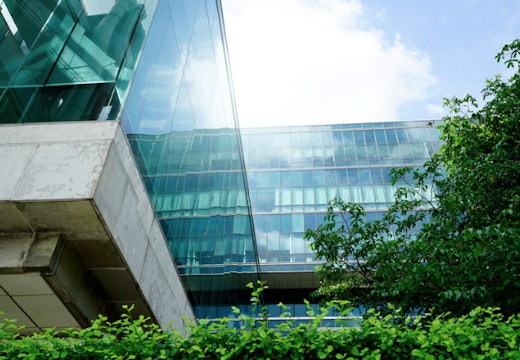How the work environment supports our ability to remember
Memory is essential for knowledge work and depends on contextual clues to aid recall, according to new psychological research. Is this another reason to support a return to the office?
Knowledge workers rely on their memory to complete tasks every day. So, how important is the context of the work environment to supporting learning and remembering?
The answer is a lot, according to a new study by a research team led by Joey Essoe from the University of California’s psychology department. This sheds fresh light on the relationship between location and learning. Findings explore the link between context and the ability to remember things.
The research team reports that ‘Memory is inherently context-dependent: internal and environmental cues become bound to learnt information, and the later absence of these cues can impair recall.’
Learning languages
The study invited participants to don VR headsets and explore one of two environments — a fantasy fairyland or a science fiction landscape — where they could click to learn the Swahili or Chinyanja names for the objects they encountered. Some participants learned both languages in the same VR environment; others learned one language in each environment.
Subjects who had learned each language in its own unique context mixed up fewer words and were able to recall 92 per cent of the words they had learned. In contrast, participants who had learned both sets of words in the same VR context were more likely to confuse terms between the two languages and retained only 76 per cent of the words.
Place triggers memories
The findings of the University of California study are consistent with previous neuroscience research. Prior studies have shown that we remember our thoughts best in the places where we originally had them. When we forget something, such as the clever solution we developed to resolve some thorny issue, we are likely to remember it when we return to the place where we originally had the thought in question (Smith, 1985).
Similarly, people taking a test are likely to do better on that test if they take it in the same place where they learned the related material (even after several months; Abernathy, 1940). According to Russell and Snodgrass (1987): ‘Evidence has long been available that previously learned material is recalled better in the place where it was learned than elsewhere’.
In a free recall experiment (Godden and Baddeley, 1975), 18 divers learned lists of words in two natural environments—on dry land and underwater—and recalled the words in either the environment of original learning or the alternative environment. Results showed that lists learned underwater were recalled significantly better underwater, and lists learned on dry land were recalled significantly better on dry land.
‘Memories that are not themselves spatial may still be indexed by the spatial location that the original event occurred in…’
(Groh, 2014) suggests that space serves as a kind of filing system for storing and accessing memories: ‘Memories that are not themselves spatial may still be indexed by the spatial location that the original event occurred in. When you go to a college reunion, being back on campus may cause a flood of memories to return, unleashed by the familiar sights and sounds of the dormitory and lecture halls where the remembered events happened. Spatial location may be the filing system of the brain, keeping related memories grouped together and retrievable where you need them.’
These sorts of studies argue for creating dedicated workspaces for individuals and groups to work in over periods of time, until projects are completed, so that project memory is preserved. They also present an argument as to why hybrid working across a range of locations and contexts (home, office, third spaces etc) might be detrimental to company and individual learning.
Research Sources
Abernathy. 1940. ‘The Effect of Changed Environmental Conditions Upon the Result of College Examinations.’ Journal of Psychology, vol. 10, pp. 293-301.
Joey Essoe, Nicco Reggente, Ai Ohno, Younji Baek, John Dell’Italia, and Jesse Rissman. 2022. ‘Enhancing Learning and Retention With Distinctive Virtual Reality Environments and Mental Context Reinstatement.’ npj Science of Learning, vol. 7, no. 31.
Duncan Godden and Alan Baddeley. 1975. ‘Context Dependent Memory in Two Natural Environments: On Land and Underwater.’ British Journal of Psychology, vol. 66, no. 3.pp. 325-331.
Jennifer Groh. 2014. Making Space: How the Brain Knows Where Things Are. The Belknap Press: Cambridge, MA.
James Russell and Jacalyn Snodgrass. 1987. ‘Emotion and Environment.’ In Daniel Stokols and Irwin Altman (eds.) “Environmental Stress.” Handbook of Environmental Psychology, Volume 1, John Wiley & Sons: New York, pp. 245-280.
Steven Smith. 1985. ‘Environmental Context and Recognition Memory Reconsidered.’ Bulletin of the Psychonomic Society, vol. 23, no. 3, pp.173-176.
Steven Smith, Justin Handy, Alan Hernandez, and Larry Jacoby. 2018. “Context Specificity of Automatic Influences of Memory.” Journal of Experimental Psychology: Learning, Memory, and Cognition, vol. 44, no. 10, pp. 1501-1513.
‘When Using Virtual Reality as a Teaching Tool, Context and ‘Feeling Real’ Matter.’ 2022. Press release, UCLA
Read more of the latest research insights from Sally Augustin in Research Roundup, her regular column in the Innovation Zone here.








